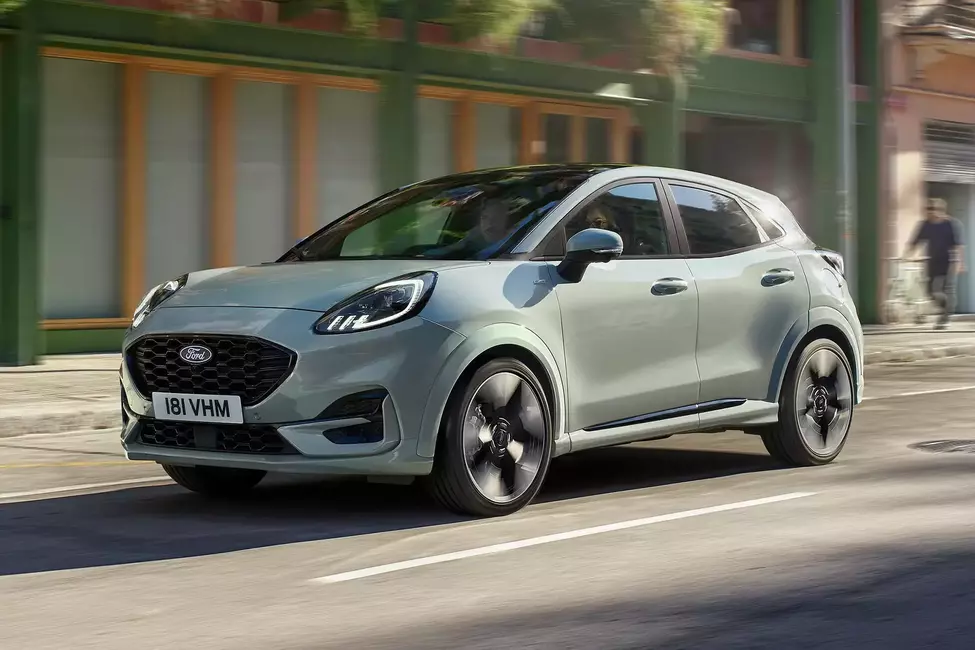What is Personal Contract Hire (PCH) car finance?

What is Personal Contract Hire (PCH)?
Leasing, also known as PCH, is one of the most affordable ways to drive a brand new car.
Like changing your car regularly? Want a brand-new car at relatively low monthly payments, and aren’t bothered about owning the car at the end of a finance contract? Then Personal Contract Hire, also known as PCH or simply as leasing, could be for you.
PCH is a specific type of leasing, and is effectively a long-term car rental agreement. After making an initial payment, you then pay a set amount each month to have custody of a brand-new car over an agreed length of time (usually between two and four years) and up to a pre-agreed mileage limit.
If at the end of the contract the car is damaged beyond normal fair wear and tear standards then you could have to pay a penalty, and there could also be extra charges if you go over the agreed mileage limit. But those extras aside, you simply hand the car back with nothing else to pay.
PCH car finance: Pros and Cons
Pros of PCH car finance
- Often the lowest monthly payments for a new car
- Car’s value at the end of the contract isn’t your concern
- Can bundle in service and maintenance costs
Cans of PCH car finance
- No option to buy the car – you pay only to use it
- Generally only available on new cars
- Lack of consumer protection if you want to end the contract early
Low payments, but you can’t buy the car
Unlike a Personal Contract Purchase (PCP) finance deal, there’s no option to buy the car at the end of the contract, so if you think you might want to keep the car for longer then PCH may not be for you. (That said, some leasing providers may let you extend the contract for longer.)
That means that you’ll have nothing to show for your monthly payments at the end of the contract, with no chance of equity in terms of the car’s value. If you want another car when your contract ends, you’ll have to just start another one.
However, the upside to the lack of purchase option is typically lower monthly payments than an equivalent PCP deal. You also don’t have to worry about the car’s value at the end of the contract – that’s the leasing provider’s problem.
PCH is generally only available on brand-new cars, so while your monthly payments will typically be lower than finance contracts on the same brand-new model, you could have lower instalments financing a used car. That’s worth keeping in mind if budget is your top priority.
Consumer protection
PCH deals don’t have the same level of consumer protection by law as finance arrangements like PCP and Hire Purchase (HP). That means it can be difficult and/or expensive to end the contract early if you need to change cars or are struggling to meet your monthly payments.
Voluntary Termination, which is available on finance deals once you’ve paid half the owed amount, isn’t applicable to leasing. That means you’ll need to be confident in your ability to pay your agreed monthly payments for the entire duration of the contract.
How Personal Contract Hire works
PCH is a simple process. You start by choosing a car and agreeing to a contract. The variables will be the initial payment, an annual mileage limit and the contract length, which is typically between two and four years.
You then pay your initial payment – usually the equivalent of between three and 12 monthly payments – and then pay the agreed amount each month for the duration of the contract.
And that’s it. Once the payments are finished, you hand the car back. If the car has damage beyond the fair wear and tear standard, then you’ll likely have to pay a penalty charge to cover repairs.
Charges also apply at the end of the contract if you go beyond the agreed mileage limit, too. This is usually between 6p and 10p per mile, but it can be higher, so make sure you check the details. If in doubt, opt for a mileage limit higher than you expect to cover. Although that being said, it sometimes works out cheaper, if the excess mileage charges are low, to have a smaller mileage limit and then pay the fees at the end.
As with all elements of leasing and car finance, it pays to get several like-for-like quotes and examine the breakdown of costs to see which deal works out the best value.
You pay more interest than with hire purchase.
Can I get Personal Contract Hire on used cars?
It’s rare that PCH is available on used cars. If you’re after low monthly payments for a used car and want to hand the car back at the end of the contract, a Personal Contract Purchase (PCP) deal will let you do that, while also giving you the option to buy the car or trade it in if you change your mind.
How to get the best PCH lease deal
When considering different Personal Contract Hire deals, compare the initial payment, the monthly payment figure and the length of the contract. As a general rule, the larger the first payment, and the longer the contract, the lower the monthly payments will be.
Consider mileage allowance, too – a lower mileage mileage limit generally means lower monthly payments, but don’t just opt for the lowest and cheapest figure. Keep it realistic to what you expect to actually drive, because there are charges at the end of the contract if you go over. The per-mile fee for excess mileage will be listed on the quote.
Make sure you compare like-for-like quotes to work out the best value – same car, same mileage, same length and same initial payments. Most quotes will also show you the total payable amount, which will help. Watch out for any processing fees from the leasing provider, too.
See if servicing and maintenance is included, as this can vary from deal to deal. And make sure that the figures you’re looking at include VAT. If they don’t, add 20 percent.
PCH car finance FAQs
PCH contracts don’t let you buy the car at the end of the deal. But that said, if you fall in love with the car and don’t want to let it go, you could always ask to extend the lease, or to buy it. There’s no guarantee it’ll work, because a one-off sale requires extra paperwork and possibly additional costs for the leasing company, but the worst that they can say is no.
When it comes to cancellation of a PCH deal before the end of the contract, much depends on the leasing company and the terms of your specific agreement. Generally speaking, it’s more difficult (and potentially expensive) to exit a PCH deal midway through than it would be for a PCP or Hire Purchase (HP) finance arrangement.
Legal processes like Voluntary Termination don’t apply to PCH deals, and you’re likely to face large penalty charges for cancelling the agreement early. You may still have to pay all the outstanding fees, meaning you continue making payments even if the car’s been handed back.
Most PCH deals will require you to take out comprehensive insurance to protect the car – remember, it’s the leasing company’s car, not yours. This should mean that if any repairs are needed to the car, you’re covered, subject to any excess on your specific insurance policy.
However, if the car is written off, the finance company will ask you for a settlement amount to end the contract. Your insurance payout will go towards this, but it’s important to remember that the insurance company will only pay out what the car is worth at the time it was written off – not what it cost when new. If the amount you owe the leasing company is more than the amount the insurance company pays out, you’ll need to pay the difference.
This is most likely to be a problem early in the contract. When a brand new car is sold it depreciates very fast at first. Many insurance policies will actually cover the full value of the car if it’s a year old, but the danger period is years two and three, when the amount paid by the insurer could be several thousand pounds less than you owe the leasing company.
To avoid a nasty financial hit, you could consider Guaranteed Asset Protection (GAP) insurance. This is an additional insurance policy to your standard car insurance, designed specially to cover the risk outlined above and pay the shortfall.
Just check your existing car insurance first, as some policies will pay for a brand-new replacement car if yours is written off in the first year of ownership, making GAP insurance redundant until the second year.
Browse our most popular models

24/09/2024
Best Car Deals for New and Used Cars
Whether you're looking for the best PCP deal, huge savings with a great car leasing deal or car finance discounts, we’ve searched to find the best car deals for you.
Best 0% APR Car Finance Deals
If you're looking for a 0% car finance deal on a new car, you've come to the right place. We've searched to find the best 0 interest finance car deals out there to help you save money.
Best PCP Car Deals
Personal Contract Purchase (also known as PCP) could allow you to get your hands on a new car without needing to stump up a significant sum of cash all at once. And to help you out, we've rounded up all the best PCP car deals on offer in the UK today.
Promotions
Trustpilot Reviews
Get our latest advice, news and offers
Keep me updated by email with the latest advice, news and offers from heycar.
By submitting you agree to our privacy policy














